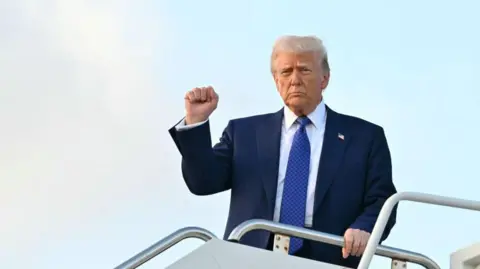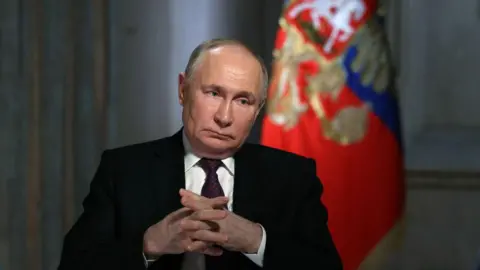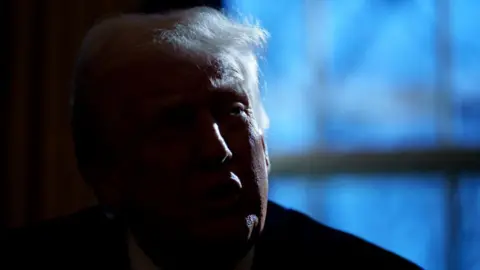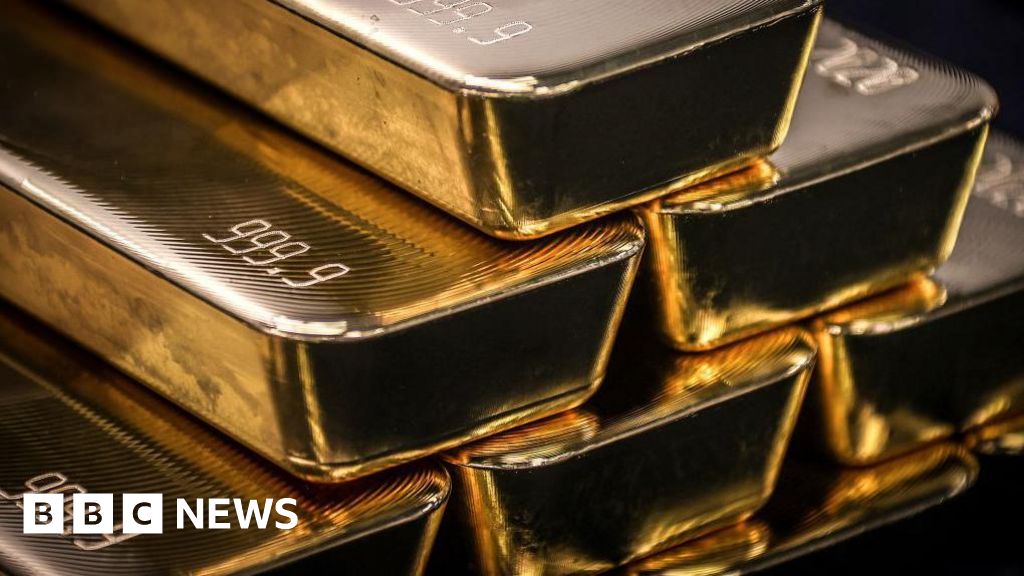World Affairs Editor
 Getty Images
Getty ImagesJust occasionally, there are years when the world goes through some fundamental, convulsive change. 1968, with the Soviet invasion of Czechoslovakia, the Paris riots and the anti-Vietnam War protests in America, was one of them. 1989, the year of the Tiananmen massacre, the fall of the Berlin Wall, and the implosion of the Soviet empire, was another.
I was on hand to see each of these things happen, and from that perspective it seems to me that, only seven weeks in, 2025 could be a year like that: a time when the basic assumptions about the way our world works are fed into the shredder.
 Getty Images
Getty ImagesThe basic reason, of course, is Donald Trump.
Since the end of the World War Two, each one of the 13 US presidents before Trump’s current term in office has at least paid lip service to a set of key geopolitical principles: that America’s own security depended on protecting Europe from Russia, and the non-Communist countries of Asia against China.
Trump has up-ended this approach. He says he’s putting American interests first, way before everything else. Mostly that comes down to the single question of how much it costs the US.
 Getty Images
Getty ImagesIn itself, this is pretty hard for his friends and allies abroad, especially in Europe. But it’s made far more difficult by Trump’s own personality. No US president in modern times, not even Richard Nixon, let his personal characteristics shape his policies like Trump does.
“He’s just like Louis XIV,” one retired American diplomat said to me, referring to France’s self-aggrandising Sun King.
Critics like this believe Trump is both breathtakingly vain, and amazingly thin-skinned at the same time. As a result, the appointees who surround him, people like Elon Musk and JD Vance, perhaps think that their position depends entirely on how much they praise him and back his views.
When President Trump claims, with no evidence, that President Volodymyr Zelensky of Ukraine is corrupt and has a low approval rating, Musk then takes it further: he piles in to say that Zelensky is despised by the Ukrainian people and is feeding off the dead bodies of Ukrainian soldiers.
No one in the Trump circle today, it seems, will cough discreetly and say, “Mr President, maybe you should consider rowing back on that statement.”
Judging from his previous term in office, we can be sure that every one of the people around him knows how he detests being disagreed with. And they will also know that many voters wholeheartedly back Trump’s approach, and feel they have been bankrolling security in a far-off continent.
He has committed himself to stopping the Ukraine war by Easter. He is absolutely correct when he says that President Vladimir Putin is keen on this. Russian troops are, through sheer force of numbers, making slow advances in the eastern part of Ukraine.
But the cost in Russian lives is immense. If the process continues, Russia may have to turn to conscription, which would be dangerously unpopular and might even destabilise Putin’s regime. Everything Trump says about getting peace is music to his ears.
John Bolton, Trump’s far-from-subservient national security adviser during his first administration, said the other day that they’d be breaking out the champagne in the Kremlin when they heard the Trump administration’s peace plan. It certainly felt like a historic moment – not just in Moscow but around the world.
Putin has pointedly backed the idea that Trump really won the 2020 election. It may not be true, but President Putin knows that Trump favours anyone who backs his view of things.
Why, by contrast, have Trump and the people round him come down so hard on President Zelensky? It must partly be because he’s not obediently doing what he’s told, such as returning to the negotiating table and strike a deal on US access to Ukraine’s critical minerals.
At the same time, President Trump understands that Zelensky is the weakest link in the US-Russia-Ukraine trio, and can be squeezed in a way that Putin can’t be. The more pressure that is piled on Zelensky, the quicker a peace deal will come.
 Getty Images
Getty ImagesPresident Trump never seems, at least in public, to show much interest in the fine detail of any agreement. It’s the agreement itself that matters to him, even if Ukraine and its allies believe it’s manifestly unfair and allows Russia to come back at some future date and start the war all over again.
British and German diplomats whom I know have been enraged by the way Trump went about getting Russia to the negotiating table. “He had two major cards in his hand,” said one. “The first was Russia’s isolation. Putin would have made plenty of concessions to get himself to the talks with America – only Trump didn’t insist on any concessions at all. He just let him sit down and start talking.”
The other card, the diplomat said, was to insist that Ukraine should be allowed to join Nato. “Trump could have banged away about this and extorted all sorts of agreements from Putin, before finally saying OK, well, Ukraine won’t join Nato in that case.” In European capitals it’s felt that he threw away both of his essential cards before the talks even started, without any preconditions.
Already, though, some European diplomats with experience of US politics are advising their governments that this grand monarchical period in Donald Trump’s presidency, where his advisers defer to him (he literally referred to himself as a “king” this week), won’t last.
Trump currently has control of a pliant Congress and a conservative Supreme Court – but in only 20 months’ time, in November 2026, there will be mid-term elections in the US.
 Getty Images
Getty ImagesThere are signs that inflation is starting to rise in America, and enough people may well be affected badly by the upheavals to want to punish Trump’s Republicans.
If he loses control of one or both Houses, the power he has at present of pushing through every plan and policy, no matter how controversial, will diminish.
But an awful lot can happen in the next year and eight months. Trump’s expansionism might embolden China. A major international trade war, sparked off by Trump’s tariffs, could open up. The European Union seems likely to become politically and economically weaker than ever.
Agreeing peace in Ukraine on Russia’s terms will be something entirely new for the United States. In the great majority of negotiations since 1945, Russia has struggled to get its way because of America’s economic and military strength.
Now President Putin, having made the costly decision to invade Ukraine three years ago, looks likely to get away with it, and prosper.
If that happens, then 2025 will indeed be remembered as a key year: a moment when the history of the world changed, and nothing was ever quite the same again.




